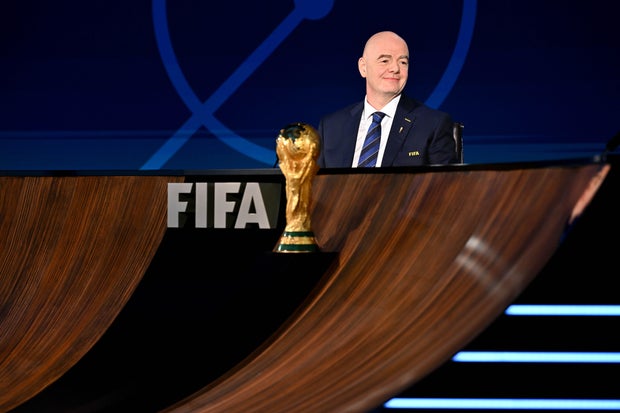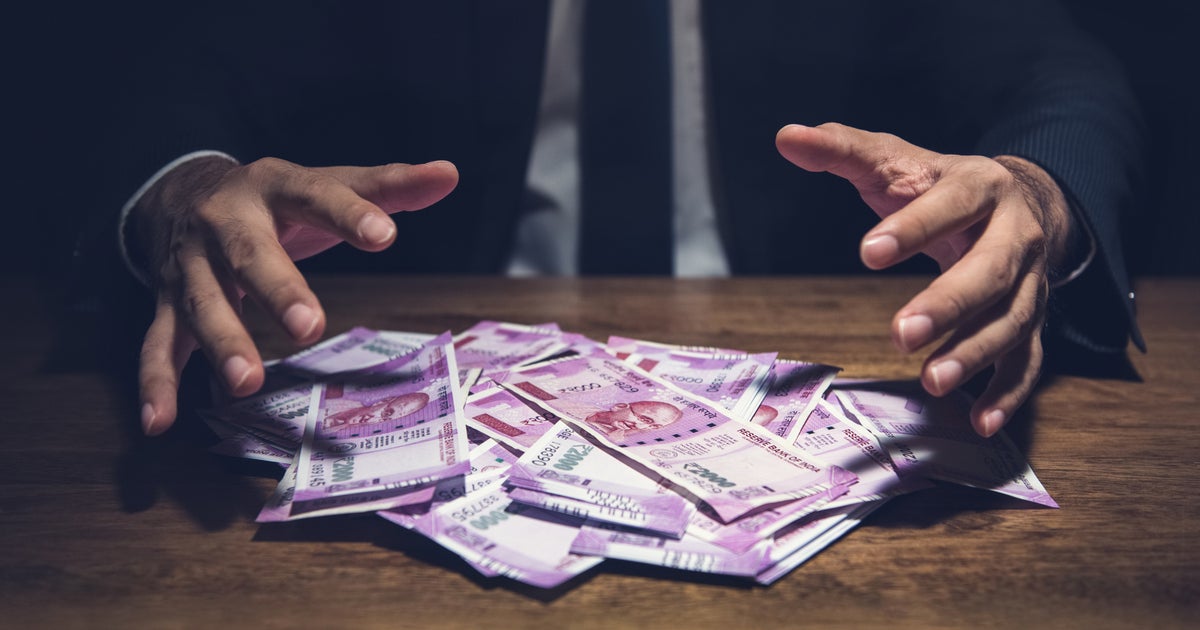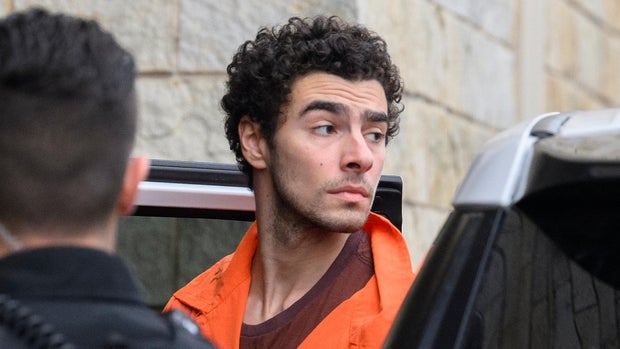CBS News
Saudi Arabia chosen to host 2034 World Cup, prompting backlash from rights groups

Soccer’s international governing body FIFA confirmed Wednesday the locations for the next two men’s World Cups, announcing Spain, Portugal and Morocco as joint hosts for the 2030 tournament, with games played in Uruguay, Paraguay and Argentina. FIFA also announced Saudi Arabia as the host for the 2034 World Cup.
The consideration and now announcement of Saudi Arabia as a host has prompted backlash from rights groups due to the country’s human rights record.
Harold Cunningham – FIFA/FIFA via Getty Images
“FIFA is willfully blind to the country’s human rights record, setting up a decade of potentially horrific human rights abuses preparing for the 2034 World Cup,” Minky Worden, director of global initiatives at Human Rights Watch, said in a statement in November.
Saudi Arabia’s human rights record
Rights groups point to evidence that Saudi Crown Prince Mohammed bin Salman, known as MBS, has presided over numerous documented cases of torture, mass executions and forced disappearances. Domestic criticism of the state, even on social media, has been met with imprisonment and torture.
The CIA concluded with “high confidence” that MBS had personally ordered the 2018 assassination and dismemberment of Washington Post columnist Jamal Khashoggi at a Saudi diplomatic office in Turkey.
The kingdom has recently made massive investments in global sports, drawing accusations of “sportswashing” — the use of athletes and games to mask repression and authoritarian rule by “laundering” the image of a country.
Concerns over 2034 World Cup
According to Human Rights Watch, Saudi Arabia’s hosting documents show it plans extensive construction work to prepare for the World Cup, including 11 new and refurbished stadiums, over 185,000 new hotel rooms and the expansion of other infrastructure including airports and roads.
“Saudi Arabia’s massive infrastructure deficit will rest entirely on the backs of migrant workers building it,” Human Rights Watch said in a report, adding that an independent analysis commissioned by the Saudi Arabia Football Federation as part of its FIFA bid was “embarrassingly inadequate.”
Human Rights Watch, along with 10 other rights groups and labor organizations including Amnesty International and Football Supporters Europe, wrote to the law firm that produced the report for the Saudi federation to voice their concerns. Human Rights Watch said there was no meaningful response from the firm.
“Not a single migrant worker, victim of human rights crimes, torture survivor, jailed women’s rights advocate, or Saudi civil society member was consulted for FIFA’s supposedly independent report,” Worden said. “FIFA’s treatment of the Saudi bid is an abysmal failure to implement mandatory human rights risk assessments and protections for the millions of migrant workers who are going to make the 2034 World Cup possible.”
CBS News
NSC spokesperson John Kirby addresses drone sightings, says many are manned aircraft

Watch CBS News
Be the first to know
Get browser notifications for breaking news, live events, and exclusive reporting.
CBS News
Why Trump visited the New York Stock Exchange

Watch CBS News
Be the first to know
Get browser notifications for breaking news, live events, and exclusive reporting.
CBS News
UnitedHealthcare CEO murder suspect, Luigi Mangione, in maximum security as a New York grand jury hears evidence

NEW YORK — A New York grand jury is beginning to hear evidence in the case against Luigi Mangione, the suspect in the killing of UnitedHealthcare CEO Brian Thompson, according to a person familiar with the matter.
Prosecutors from the Manhattan District Attorney’s office started presenting the case Thursday, seeking to indict Mangione for the fatal shooting in Midtown Manhattan. The DA’s office declined to comment on the grand jury proceedings due to the confidentiality.
New York Gov. Kathy Hochul says she has spoken with Pennsylvania Gov. Josh Shapiro multiple times to make sure Mangione is extradited quickly after he was arrested on unrelated charges in Altoona.
“I want to get him back here in the State of New York and run him through our criminal justice system. Because that horrific attack occurred on our streets, and the people of our city deserve to have that sense of calm that this perpetrator has been caught and he will never see the light of day again, if there is justice,” Hochul said in an interview Thursday morning. “You cannot assassinate an individual on the streets of New York. Not now, not ever.”
Mangione is being held under maximum security at Huntingdon State Correctional Institution in Huntingdon County, Pennsylvania. The Corrections Department says he is not under suicide watch or in solitary confinement, but he does not get to interact with other inmates. They also say he has not been violent.
What happens next in the extradition process?
Jeff Swensen/Getty Images
First, the Manhattan District Attorney’s office has to officially file an indictment against Mangione. Hochul said Thursday the DA’s office is working to make sure the indictment will be “iron clad.”
“You don’t want to have anybody, a defense attorney, be able to attack what you’ve done. You have to get it right,” she said. “We expect that to be issued any day now, and at the second that happens, I’m issuing a warrant for extradition.”
Next, Hochul plans to issue what’s called a governor’s warrant, which Shapiro also has to sign. A spokesperson told The Associated Press he is “prepared to sign and process it promptly as soon as it is received.”
Under Pennsylvania law, a suspect can be held for 30 days while authorities seek a governor’s warrant.
“I will issue it, he will sign it. But the judge has already set a date for a hearing on Dec. 23. We’ll see whether that date has to hold,” said Hochul. “The governor and I both want him brought back to New York as soon as possible. So there will be some legal activities from the defense lawyer side, but I believe that the judge will say he’s going back to New York. So we’re expecting that to happen any day now.”
Once the warrant has been issued, Mangione has to appear before a Pennsylvania judge to confirm he is the person being sought in New York, either through fingerprints or DNA found at the scene.
In some cases, suspects can be extradited in a matter of days. But the process can drag on for several months if the defense challenges it. To fight extradition, the defense has to file a petition in Pennsylvania by Dec. 24.
Mangione’s attorney says his client intends to plead not guilty and wants to examine the evidence that police say they have.
“As lawyers, we need to see it. We need to see: How did they collect it? How much of it? And then we would have our experts… take a look at that, and then we would challenge its admissibility and challenge the accuracy of those results,” lawyer Thomas Dickey said in an interview.
NYPD sources tell CBS News once he is extradited back to New York, there are plans to upgrade the charges from second-degree murder to premeditated first-degree murder.
NYPD says evidence links Mangione to murder scene
Obtained by CBS News
As Mangione fights extradition from Pennsylvania, investigators say they are amassing a mountain of forensic and ballistic evidence tying the accused killer to the murder of UnitedHealthcare CEO Brian Thompson.
So far, police say they’ve matched a gun found on him to shell casings at the scene and his fingerprints to those collected on a water bottle and a KIND Bar near a Starbucks, where the suspect was seen on surveillance video about a half hour before the shooting. Police also recovered a cellphone from an alley near the hotel and say those fingerprints are a match.
Law enforcement sources tell CBS News that Mangione had a spiral notebook with him when he was arrested where he wrote about considering using a gun over a bomb to carry out an attack because it was targeted, precise and didn’t risk innocents.
The working theory on a motive for the murder is animosity toward the health care industry, and authorities believe it may be rooted in a debilitating back injury that Mangione suffered.
Dorian Wright, an instructor at Power Yoga Hawaii, remembers the 26-year-old coming to his studio last year, mentioning he had pain.
“I remember with him, like a lot of people that come in with injuries, they tell me right in the beginning of class or while we’re doing certain poses, they’ll say, ‘Oh, I can’t do this,'” Wright said. “If I come to adjust them and help them, they’ll say ‘Oh, I can’t do this, my back.’ I do recall him saying something about his back.”
Sources say Mangione has not made any incriminating statements while in custody.
contributed to this report.











